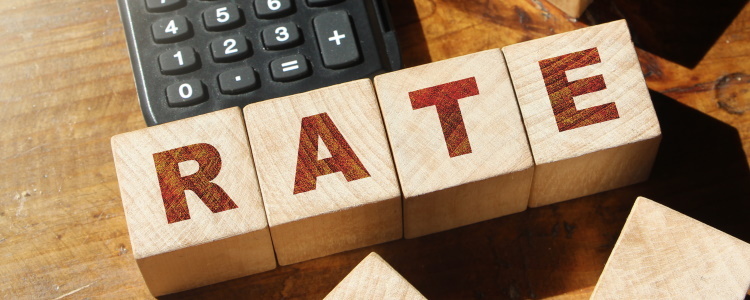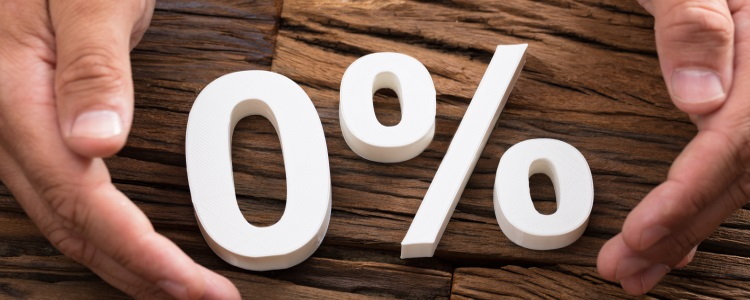For borrowers with bad credit, one of the first questions that often comes to mind when applying for car loans is "what kind of an interest rate can I expect?" Even though there's no clear-cut answer, we can give you some tips on how to research a ballpark rate, and what to expect when you're working with a bad credit auto lender.
What Determines Interest Rates for Auto Loans?
 Interest rates, like many things to do with car loans, depend largely on your credit situation. The biggest factor that typically determines your APR is your credit score. The better your credit score, the lower you can generally expect your interest rate to be.
Interest rates, like many things to do with car loans, depend largely on your credit situation. The biggest factor that typically determines your APR is your credit score. The better your credit score, the lower you can generally expect your interest rate to be.
Other factors impact APRs as well, including which lender you're working with, the state you live in, and the vehicle you're financing. These factors combine with your credit score, so two people with the same score may end up with different interest rates.
Since the biggest factor in determining an interest rate is still your credit score, you should know your credit score and what's on your credit reports before you begin shopping for an auto loan.
Right now, the three major U.S. credit bureaus are offering free weekly credit reports and scores when you visit www.annualcreditreport.com. Normally, you're only able to view one copy of your credit report from each bureau – TransUnion, Experian, and Equifax – for free once every 12 months. However, due to the coronavirus pandemic, reports and scores are being offered weekly through April 2021.
Interest Rate Shopping and Bad Credit
When budgeting for a car loan, you should have a rough idea of what your interest rate might be. Once you have your credit score, this can be easier to research. In order to find the general APR you can expect, you can go online and see the rates other people with similar credit scores have qualified for, or you can go through the process of rate shopping.
Rate shopping is when you apply with multiple lenders for the same type of credit within a given time frame, usually two weeks. By shopping over a two-week span, multiple hard inquiries for the same type of loan only count as one, which lessens the impact on your credit score.
Because poor credit usually means a higher interest rate, it's also important that you're prepared for an auto loan APR that could be in the double digits. Higher interest rates lead to more interest charges. So, the higher the APR, the more it costs to borrow money.
Interest rates fluctuate, making it important to know that they can change over time, but yours won't change once you sign your car loan contract. Even if you're unable to qualify for an APR that's as low as you'd like, with time and credit improvement, you may be able to qualify to refinance and get the lower interest rate you're craving.
Bad Credit Auto Lenders
When you have poor credit, you're likely to have a better chance at an auto loan approval if you're working with a lender that specializes in bad credit lending. Typically, if your credit score stands at around 660 or below, you may need to apply with one of these lenders.
Called subprime lenders, they loan to people in many types of credit situations, including bad credit, no credit, and bankruptcy. The reason they're able to work with these borrowers (which traditional lenders typically turn down) is because they take things besides credit score into account when they're considering approving you for a car loan.
These lenders look at your ability, stability, and willingness to complete an auto loan. Here's a look at what that means:
- Ability – Your ability to take on a car loan has to do with your ability to meet the income qualifications. In order to qualify, you typically need to meet a lender's minimum income requirement from a single source, and have enough available income after your existing bills are paid to make an auto loan and insurance payment. The minimum income requirement varies by lender, but subprime lenders generally ask that you make around $1,500 to $2,000 a month before taxes. Additionally, they require that your current monthly debts, including a car loan, don't take up more than 45% to 50% of your monthly pre-tax income.
- Stability – In order to have the stability to qualify for a bad credit auto loan, lenders look for borrowers who have lived in the same general area for a number of years, and you can prove where you live now with a current utility bill in your name. They also usually require that you've worked at the same job or for the same company for at least six months to one year, and that you have a working landline or contract cell phone in your name.
- Willingness – Your willingness to complete a car loan can be proven by having some skin in the game. You can do this by meeting or exceeding the down payment requirement that subprime lenders have. The amount you're required to put down can vary, but it typically must be at least $1,000 or 10% of the vehicle's selling price, sometimes whichever is less. Lenders also look into your payment history on your credit reports to see if you pay your bills on a regular basis.
Find Your Next Car Loan
Even without an exact figure, now you know what it takes to research interest rates for a bad credit auto loan, and what subprime lenders look for when they consider you for vehicle financing. Now all you need is a lender.
Subprime lenders are your best bet, but they're not always easy to pick out of a crowd. When it comes to finding one, you should turn to the experts at Auto Credit Express. We know where to find the special finance dealerships that are signed up with lenders that can help you with your next loan. In fact, we're teamed up with a nationwide network of these dealers.
To get connected to a local dealership, simply fill out our fast, free, and no-obligation car loan request form, and we'll get to work matching you with a dealer right away. The process is easy, so don't hesitate to get started right now!


















